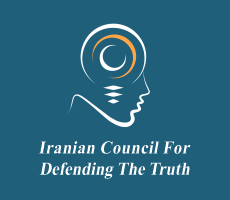I believe that for a few more days the conflict in Ukraine will be essentially one of attrition but it is inevitable that we will soon see an intensification of the fighting; in particular, it is likely that we will see an all-out offensive by Russia to secure control of what remains to be taken in Donbass and Southeast Ukraine, as far as Transnistria. We will see already results. In any case, even if Moscow does achieve its immediate goals, the conflict between Russia and the US is likely to spread to other areas of the world.
I am convinced that compromise was possible in the first month of the war but it is evident that Washington and London have done everything to sabotage the Istanbul talks and now it is too late; to have an end to the conflict in Ukraine, a victor on the military ground will have to emerge.
It is clear that the declaration of intent between Putin and Xi Jinping during the Beijing Olympics is very significant in this regard. Both stressed that the era of US unilateralism is over and that we are moving towards a new multipolar world, where respect for different development models is the basis of international relations.
While the United States seeks to create a new bipolarism by ushering in a new era of “Cold War”, Russia and China are working together for the dedollarization of the planet, a geofinancial project that attracts many non-aligned countries, not least Brazil. Both nations have signed a decades-long strategic agreement with Iran, which involves both economic and military spheres. In Asia, Africa and Latin America, several governments are confidently warding off this anti-imperialist attempt and the West risks finding itself more and more isolated.
Putin wants to make the most of this intervention by putting Ukraine’s main industrial and agricultural zones under control (about 80% of the oil refineries of the coal mines and seeding fields are already occupied by the Russians) and ensuring a secure connection to Crimea, with the aim of dominating both the Azov and Black Seas. The union between Russia and Belarus is now an established fact, on the other hand Lukashenko had no choice, if he had not re-aligned himself strictly with Putin he would have fallen.
As far as I know, the Russia intends to find a form of collaboration / division of the zones of influence with China in Central Asia, integrating the two gigantic commercial / infrastructural projects of the Belt and Road Initiative and the Eurasian Economic Union. Recognition of the current Taliban government in Kabul should be the first necessary step to ensure stability for the whole of Central Asia. The strengthening of ties between Moscow and Islamabad goes in this direction. Crushing terrorist / extremist groups by involving neighboring countries must be the second step.
Since the conflict broke out, Germany has increased its defense spending, Finland’s public opinion on NATO membership went through a major change, and Georgia applied to join the EU. All in all, certainly in the short term there will be one of the effects hoped for by the United States, namely an even closer rapprochement between the United States and the European Union in the name of “Atlantic Solidarity”. Those who believe they belong to the so-called Western world will compact even more under the protective wing of the Pentagon. However, this mechanism is only apparent.
Meanwhile, there is no real European unity in the adoption of sanctions, so that Russian oil and gas for now continue to be purchased by individual nation states of Europe. Secondly, it is necessary to underline how 80% of the countries of the world have not adhered to the sanctioning policy against Russia desired by Washington and Brussels; Moscow’s economy has by no means collapsed, on the contrary the European economy seems to be in much more difficulty. It is a long geopolitical war whose outcomes are far from obvious. As Foreign Minister Lavrov pointed out, the Russians have started a special military operation to end US unipolar rule.
In the past I have followed closely and in particular the conflict in the former Yugoslavia but I must say that during this crisis the mainstream media have outdone themselves. The systematic invention of fake news against Russia has overcome the ridicule, were it not that this situation risks widening the war to make it global, with all that goes with it. The level of russophobia has never been higher, the simple fact of belonging to an ethnicity or a culture becomes a fault and it becomes impossible to re-establish relationships that until recently seemed consolidated.
It is clear that after the US military and political defeat in Afghanistan, the media apparatus serving the imperialist wars is on the verge of a nervous breakdown: another setback in Ukraine could not be accepted. This leads to a tightening of tones and a suffocation of all truly alternative voices, with two objectives: to silence Russia’s military successes and NATO’s inadequacy, to enlist new members in what could become an ever-growing war campaign. Washington wants a change of government in Moscow to break the Russian-Chinese alliance and then focus on the main geopolitical enemy, Beijing. But this risks having very high costs for everyone.
NATO will initially experience a revitalization due to the current crisis in Ukraine. Probably the United States will try to recreate the same mechanism also in Asia (after having failed in Africa and Latin America) to counter China in the Pacific Ocean but it is probable that this project will only affect Anglo-Saxon countries (Australia, New Zealand, Canada but not India and Pakistan for example).
Another contradiction within NATO is Turkey’s behavior; Ankara, while formally belonging to the Atlantic Alliance, pursues a policy of national interest outside the logic of military and geopolitical blocs. Above all, it is necessary to understand how long the clearly divergent interests between Europe and the United States can continue to be smoothed out by NATO: in Italy, for example, for the first time a large slice of public opinion far from the mainstream is speaking openly about this; contradiction and declares unwilling to follow Washington in its military adventures.
It is clear that other countries can learn two lessons from the current conflict: the first is that the international law that the United States has been doing waste paper for 30 years is no longer worth anything. Kosovo’s precedent in 2008 created a domino effect that is no longer recoverable. The second consideration is that in a multipolar world where a single superpower no longer prevails, regional actors can also intervene militarily to protect their interests. The Middle East and Africa are a clear example of this, if we think of the current situation in Libya, Syria, Iraq or Mali and Cameroon (where the Russians are replacing the French). Much, however, will depend on the outcome of the conflict: if Russia were to emerge victorious, it is clear that it will be an example for all those countries that no longer accept the arrogance of the West.

